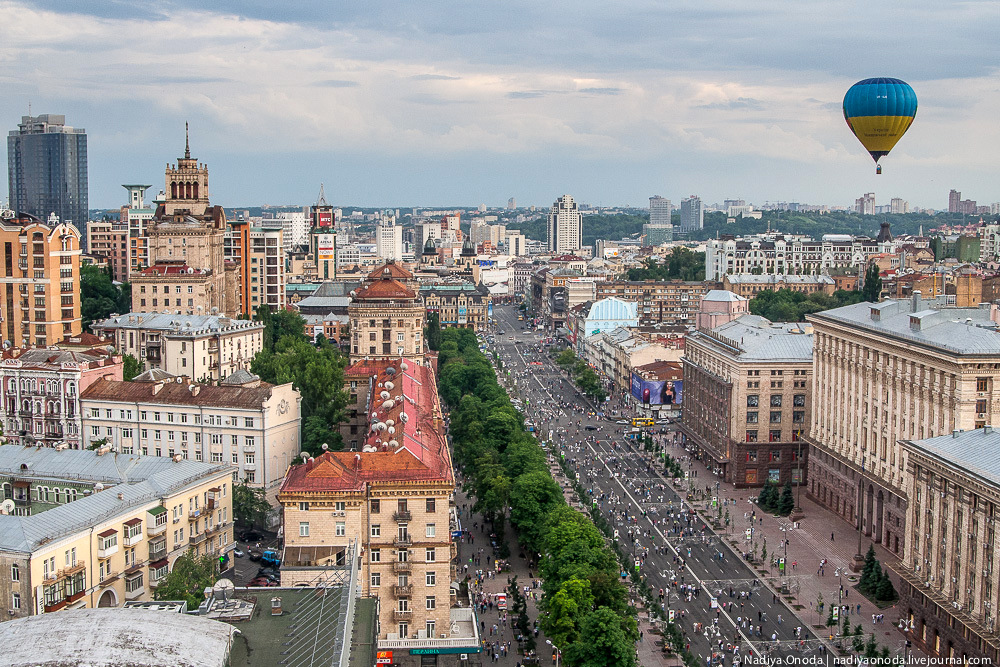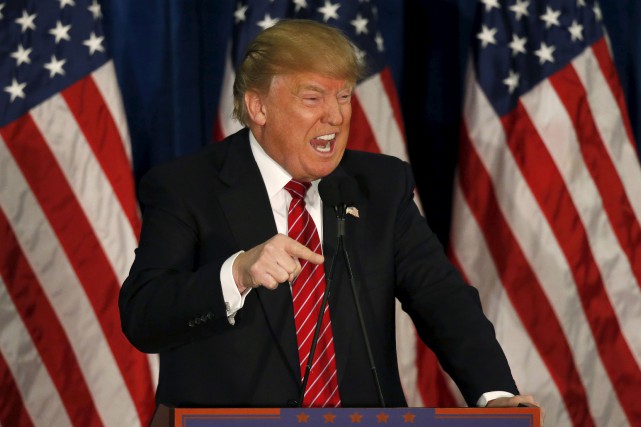
Ukraine’s Future: Between Clinton and Trump
The risks of internal destabilization could be overlaid with geopolitical circumstances which our poor country might find itself in within the foreseeable future.
One of these deciding factors is the election of the 45th U.S. president, which will happen on Tuesday, Nov. 8 in all 50 states. It’s not only our fate that depends on the results of this dramatic competition; practically the fate of the entire civilized world does as well.
Only two things kept Putin from reaching Kiev: the resistance of the Ukrainian volunteer battalions in the first months of the war in the east, and America's uncompromising position on the Ukrainian issue in the international arena. Nothing else stood in the way of the great Russian midget's entrance into the city, without which the very existence of a Russian Empire is unimaginable. Without Kiev, the house of cards that is Russia's fictitious history topples at the first breeze.
That’s why the average American's choice will determine just how strong pro-Western tendencies in our foreign and domestic policies will be for the next five to six years.
It must be noted that attitudes toward Ukraine in the U.S. itself are ambiguous. Every single presidential candidate has skillfully played on this fact.
The greatest danger for Kiev is the billionaire Donald Trump. He openly expresses sympathy for Putin and promises to rectify the cooled relationship between the U.S. and the Russian Federation if he wins. It's clear that the cost of this rectification will be the sovereignty and territorial integrity of our troubled fatherland. Trump has already raised his ratings to almost 35 percent with this rhetoric. Putin talks about Donald Trump as if he were the unambiguous leader in the U.S. presidential race. Putin can't help lying even about relatively petty things. Of course, he knows full well that at the very least Democratic candidate Bernie Sanders' ratings, at nearly 40 percent, are higher than Trump's by 15 percent. This is cold comfort, however, since Sanders is practically a continuation of Obama's moderate policies regarding Ukraine. He wants to limit U.S. efforts toward sanctions and give the conflict the chance to die down on its own. The main thing that makes Sanders harmful for Ukraine rests in the fact that he thinks any military assistance to Kiev will provoke the Russian Federation to further military action. This position justifies future probable (God forbid!) indifference, indecision and inaction from the White House.
The U.S. presidential candidates most sympathetic toward Ukraine are Republicans Ted Cruz and Marco Rubio, along with well-known Democratic candidate Hillary Clinton. Clinton's ratings, at nearly 50 percent, make her the unquestioned favorite in the current presidential race.
Mrs. Clinton has promised Ukraine full economic and military support. She also promised to oppose Putin on all political levels without exception.
The senator from Texas, Ted Cruz, is also convinced that it is in the national interest of the United States to drastically increase Kiev's military capacity by providing modern lethal defensive weapons, significantly expanding trade relations and providing comprehensive assistance in implementing drastic economic reforms. In Cruz's thinking, aid to Ukraine must be accompanied by additional deployments of anti-ballistic missile systems in Eastern Europe and diversification of energy resources.
In fact, Hillary and Ted are a real jackpot for Ukraine. That is, of course, if Ukrainian authorities can stop using the country's predicament for their own mercantile ends and start working to defend the state's national interests.
Marco Rubio, the senator from Florida and a descendant of Cuban immigrants, in large part supports the idea of Ukraine as a strategic partner for the United States. One in every seven Americans is ready to vote for him. Rubio calls the Russian president a gangster and an organized crime figure that controls a $2 trillion economy. In trying to defend Europe from Russian aggression, Marco plans to establish a permanent U.S. military presence on the European continent, strengthening NATO's defensive capability in general, and Ukraine, Georgia and Moldova's in particular.
All this sounds appealing, but somewhat fantastical when taking into account the reality the future U.S. president will have to face in the first months after their inauguration.
Nevertheless, there is hope that if Ukrainians can make it to May-June 2017, they will see their powerful strategic partner taking real steps toward providing Ukraine with everything it needs for strengthening its defensive capabilities, lifting its economy, undertaking reforms and establishing basic humanitarian institutions.
We Ukrainians are confident that our country will eventually have a bright, prosperous future. We still believe that those who guaranteed our security when we gave up our nuclear arsenal will defend us. We believe that eventually we will become a reliable bastion of the global security system.
However, a millennium of a dramatic and sometimes tragic history has created a popular skeptical, but justified, saying: "Promises are trinkets that delight the fool.”
Looking at the millions of unhappy faces on our city streets, you understand that there are no fools here, only patient and long-suffering people... That is, up to a certain point...

